MP Scott Reid, Michelle Foxton and Calvin Neufeld share their insights
LAURIE WEIR
The issue of reopening the former abattoir facility at the Correctional Service Canada (CSC) Joyceville Institution, has ignited a debate locally, with concerns centred on feasibility, costs, safety, ethical implications, and the broader impact on local food production and sustainability.
The facility, which was the last in Canada to be run with prison labour, ceased operations on Sept. 30, 2022, after the facility’s operator, Wallace Beef, had its lease extended by a year in 2021, and the company’s owner subsequently retired.
The CSC posted an invitation on its website for an “Expression of Interest” on Aug. 22, 2024, with a deadline of Oct. 15, 2024. They’re looking for a five-year term of lease, to start Jan. 1, 2025. “The commercial operation must employ offenders,” the website states. “Those offenders employed must be paid for their labour in accordance with wage standards for the province of Ontario.”
People are weighing in, including Federal Liberal candidate Michelle Foxton, who has been vocal in her support for reopening the Joyceville abattoir, and Perth’s Calvin Neufeld, the founder of Evolve Our Prison Farms, which on July 31 released a report titled, “Prison Farms Exposed: Revelations from Access to Information.” Lanark-Frontenac-Kingston MP Scott Reid wants to have a cautious look at options.
After a fire at Quinn’s Meats, an abattoir in Yarker earlier this year, Foxton said this situation serves as a stark reminder of the risks associated with relying on a single facility. The abattoir opened in 1976. (Licensed meat plants in Ontario can be found here.)
“This incident has led to a significant production crisis, underscoring the necessity of having multiple operational abattoirs to ensure resilience in our agricultural infrastructure,” Foxton said in an emailed statement to Hometown News.
“By supporting all available options, including Joyceville, we can assist our local farming community and provide a stable supply of affordable, quality meat to consumers. The goal should be to create a robust and diversified network of abattoirs that can withstand unforeseen challenges, ensuring the long-term sustainability of local food production,” she said.
Reid said rebuilding the Joyceville facility would be just as challenging and costly as reopening Quinn’s Meats. This abattoir is located in Yarker, which is in the western part of Reid’s jurisdiction.
“We must be careful not to throw good money after bad. The recent fire at Quinn’s Meats highlights the risks of relying on a single facility, but that doesn’t mean we should rush into reopening Joyceville without fully considering the costs and challenges,” Reid explained in a story covered by the Frontenac News recently.
Neufeld has been a critic of reopening the Joyceville abattoir and has raised concerns about the financial implications. “The costs of maintenance and repairs to reopen the Joyceville abattoir are in the range of $5 million,” he told this publication. “This significantly exceeds the value of the building itself ($1.5 million) and the cost of building a new abattoir off prison grounds,” Neufeld questioned the wisdom of reopening a prison abattoir with such a high price tag for taxpayers.
Foxton countered: “It’s not about prioritizing one facility over the other,” she said. There is a “need to increase production capacity, which should include considering Joyceville in addition to a rebuild of Quinn’s, if feasible.”
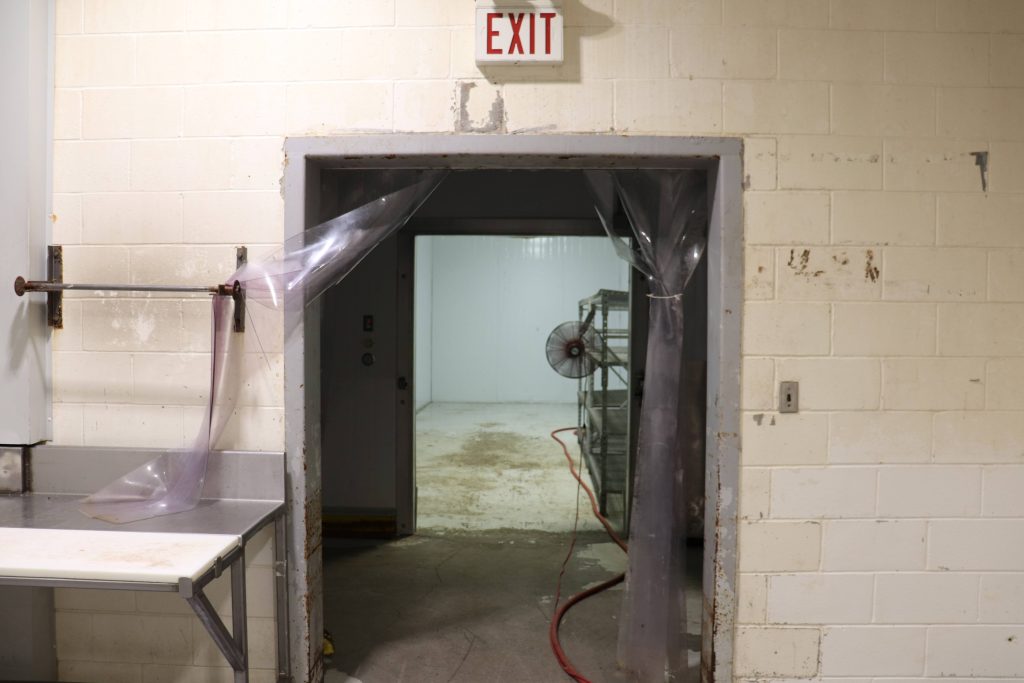
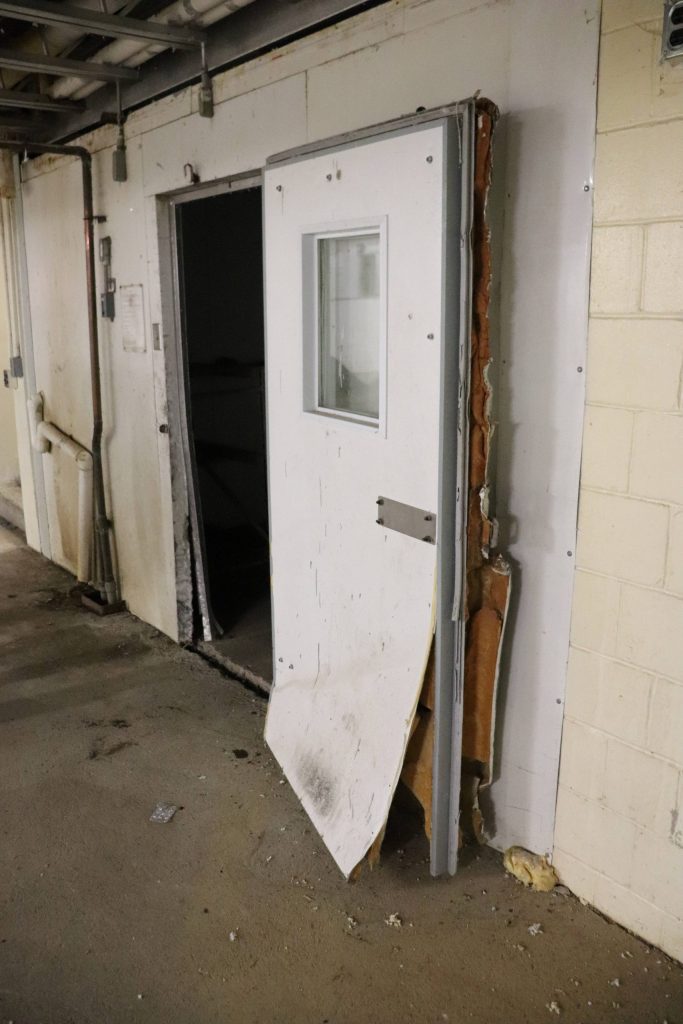
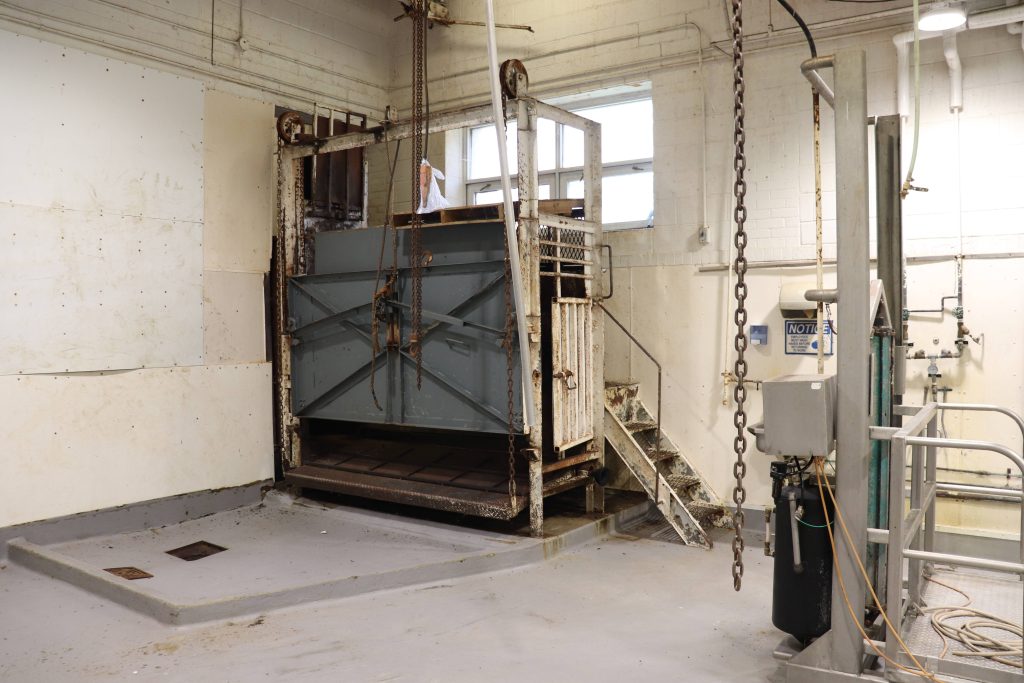
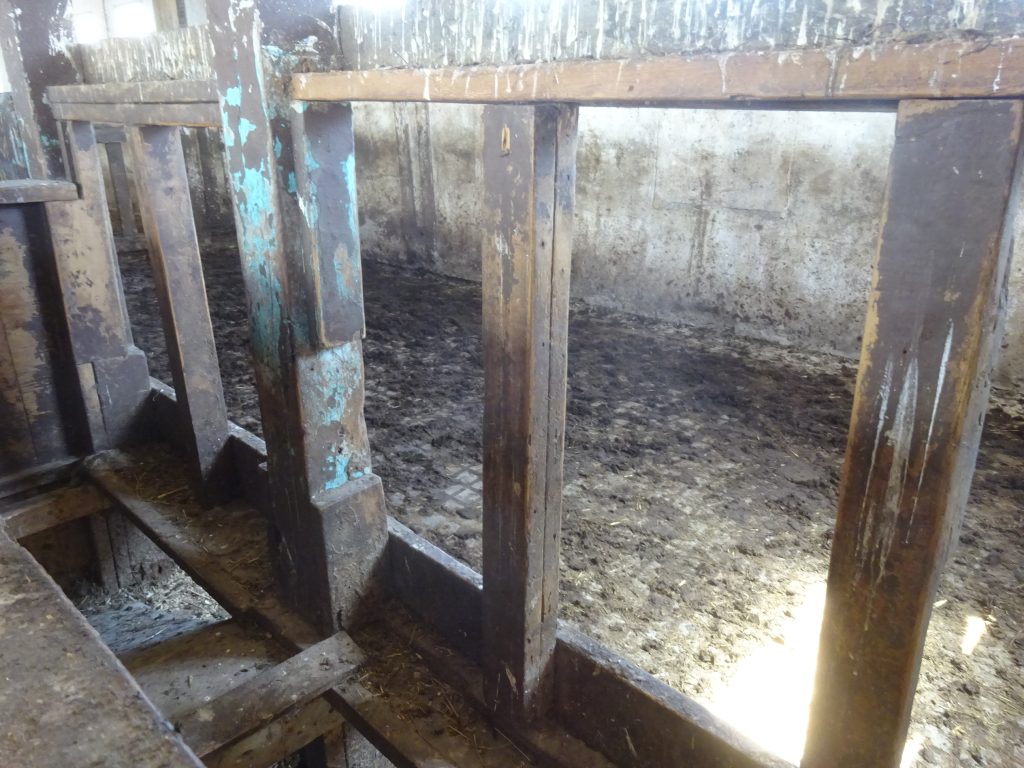
Neufeld has also expressed concerns about the structural issues and health hazards at Joyceville, including the mould and maintenance problems identified by CSC staff during Neufeld’s visit to the abattoir last November. Photos taken by Neufeld “speak for themselves as to why no food should be produced for human consumption in that facility ever again,” he said.
Foxton toured the facility in March. “During my visit, the building had been cleaned, sterilized, and appeared structurally sound,” she wrote. “While I did not have access to engineering reports, my observations do not align with Mr. Neufeld’s anecdotal claims.” She said the responsibility for assessing the building’s condition lies with CSC, which she believes is taking the necessary steps to prepare the facility for potential reopening.
Neufeld provided Hometown News with the engineering report assessing the building’s condition, which cost taxpayers over $700,000 to produce. The report identifies millions of dollars worth of structural repairs that would be required to reopen.
Reid, meanwhile, highlighted past cost overruns and delays in similar federal projects as a cautionary tale. “We must be vigilant in ensuring that any efforts to reopen the abattoir do not fall into the same traps as previous projects,” he said.
In response to Reid’s concerns about past cost overruns and delays in similar federal projects, Foxton said she would advocate for considering all viable options. “This approach is not a request for Corrections Canada or any other government entity to manage the abattoir,” she stated. “Instead, it involves leasing or renting out the government asset to a private company, ensuring that the facility is operated efficiently and effectively.”
Another issue is the use of prison labour at the abattoir, which Neufeld has criticized as “exploitative” and a violation of human rights.
“The use of underpaid prison labour for market-related slaughter work raises serious ethical questions,” he urged. He pointed to United Nations standards for prison labour, as well as the research linking slaughter work with increased rates of crime and unemployment, making it ill-suited as a prison labour enterprise.
The International Labour Organization guidelines stress that prison labour should not unfairly compete with free labour, should be voluntary, and should respect the dignity and rights of the workers. CSC records obtained by Neufeld show that inmates were paid $3 per hour to work in the abattoir.
Foxton argued that involving inmates in the abattoir’s operations is beneficial to them. “Providing inmates with opportunities to learn transferable skills can reduce recidivism and help them reintegrate into society,” she argued. Foxton emphasized that ethical considerations are paramount and that any operation would need to adhere to all relevant laws and regulations.
“During my role as a per-diem Crown attorney, I have witnessed the consequences of unemployment for individuals released into our communities. The best chance we can give those attempting to reintegrate into society is to provide them with transferable skills and job opportunities,” Foxton said.
The debate also extends to licensing and regulatory issues, with Reid criticizing the federal government’s failure to make more federal licenses available. “The lack of federal licenses is a significant barrier to reopening local abattoirs. We need more support from the federal government to address this issue,” Reid stated.
Foxton said the primary concern for local farmers is provincial licensing. After consulting with the farming community, it is clear that provincial licensing is what matters most in this area, she indicated. To preserve the ability of small abattoirs to compete in local markets, it is crucial to facilitate a collaborative process that reviews regulations with affected (partners) and addresses barriers to economic success while ensuring food quality and safety are not compromised. We need more than one operational abattoir in our region to ensure resilience in our agricultural infrastructure. The recent challenges in the agricultural sector highlight the importance of addressing the shortage of abattoirs and meat processing plants.”
Foxton noted that farmers rely on nearby processing facilities, unlike large corporations that can source from a broad network.
“By engaging with (partners), exploring all viable options, and prioritizing the needs of our local agricultural community, we can build a resilient and sustainable food processing infrastructure that supports local farmers, ensures access to affordable, quality meat, and promotes the long-term viability of our local food production,” Foxton said.
Neufeld continues to call for caution. “We must carefully consider all the implications of reopening a prison’s abattoir for the sale of meat to the public, including the costs, safety, and ethical concerns,” he said. “If the agricultural industry has a problem, it is not the Correctional Service of Canada’s problem to solve.”
Watch for more on this story.
















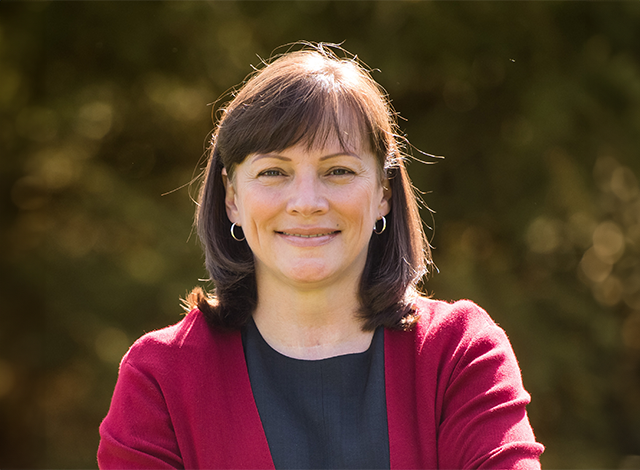



Pingback: Opinion: The Case against reopening the Joyceville Abattoir: Ethical and practical concerns - Hometown News